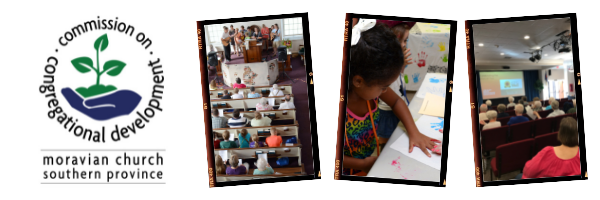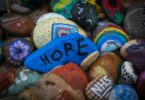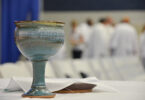
BY AMY WALTON |
I have a pet columbarium in my home.
It’s not an official resting place for animals, and it contains no niches. A couple of small decorative tins and a duo of marble urns hold the cremains of two cats, a ferret, and a Dalmatian.
Confession: I’ve actually opened and removed the bag of my dog’s cremains on a couple occasions. In the first year after his death, I pulled that clear bag out a few times and held it in my lap, tears streaming down my cheeks. It’s a bit strange to hold a clear sack of ashes, knowing those flakes were once an energetic and very large canine who was covered in spots and who provided me with nearly fourteen years of love.
When I visit my North Carolina hometown, I usually wander through the Moravian Graveyard, reminiscing about the many good folks–including my dear parents–whose earthly remains rest there. Within walking distance of my Virginia home, there are two columbaria that hold the remnants of quite a few folks with whom I shared life and worship and conversations.
I recently watched a friend carry his son’s urn down the aisle of my church at the end of the son’s funeral service. As I tearfully gazed at the father carefully cradling the container, I thought about the many times he held his son as a newborn and youth, the occasions he must have wrapped his arms around him to comfort his pain, and the pats on the back that conveyed, “Good job, son!”
We hug. We kiss. We cry. We use our bodies to convey love. We brush and floss our teeth, exercise, attempt to eat healthy, try to get adequate sleep, and wear seat belts. If we hope to live a long and healthy life, then we do what we must.

Image via Maxime Bouffard on Unsplash.com
In his first letter to the church at Corinth, Paul writes that our bodies are temples of the Spirit and that we are not our own, but rather, bought with a price (Jesus’s sacrifice). He concludes that we must glorify God with our bodies. And in that same letter, as he writes about the resurrection, he reminds us that the body that is sown perishable is raised imperishable.
The word “perishable” implies decay or going bad, something we often think of when purchasing fresh produce or dairy products. If they aren’t used by a certain date, they will likely spoil and smell pretty foul.
We don’t like to think of our bodies as being perishable, but the truth is they will break down at some point; and after we take our last breath and depart this earthly life, what remains of us physically will be reduced to ashes or dust or bare bones. Not a pleasant thought, but a reality.
My late husband was a gifted athlete. He played football in high school and the first years of college. He was a power lifter, a body builder, and even rode his bicycle cross country. He ate a clean diet and worked out hard. But four years into our marriage, he was hit head on by a loaded dump truck, an accident in which he almost died and which cost him one of his powerful legs. After becoming an amputee, he learned to scuba dive and ski down slopes.
However, his new athletic endeavors were short-lived: Four years after losing his leg, he lost his life in a boating accident in the Atlantic Ocean. An almost perfectly symmetrical body became an imperfect body with one leg and then a lifeless body that perished in the ocean.
The bottom line here is that our fleshly selves– athletic or not, healthy eaters or not, Botoxed or not, and with or without tattoos—will perish after we take our last breath.

Image via Kunj Parekh on Unsplash.com
In the creation story in the book of Genesis, we see God forming Adam out of the dust of the ground (Genesis 2:7). God fashioned the first human out of the dust of the ground and breathed life into him. However, after the fall, when Adam and Eve ate from the tree of which the Lord told them NOT to eat, God said, “By the sweat of your brow, you will eat your food until you return to the ground since from it you were taken; for dust you are, and to dust you will return.”
Dust, ashes, decomposition…to these we will return.
During the imposition of ashes on Ash Wednesday, many pastors echo the words from Genesis as they place ashes on the foreheads of their congregants: “Remember that you are dust, and to dust you shall return.” On that day we may fast. We may feel repentant. We may receive ashes.
Ash Wednesday is a reminder of our mortality. We recognize that these earthly bodies will, indeed, die; and that in this lifetime, we need to be reconciled to God. We must also be mindful of the reality that we are sinners embarking on 40-day journey of reflection and penitence, hopefully becoming more loving and transformed people.
Cremation urns, graves, and columbaria are all reminders of the brevity of this life. As we observe Ash Wednesday and begin our Lenten journeys, may we be more mindful than ever of our mortality and the way we are living our finite earthly lives.
Let us live this Lent and the rest of our lives as people of love, of repentance, of hope, and of limited time.
About the author

Photo provided by the author.
Amy Walton is a certified life coach, certified Christian life coach, speaker, and writer who has lived in coastal Virginia for nearly 30 years. A native of Mayodan, North Carolina, she was baptized, confirmed, and raised in Mayodan Moravian Church, where she remains an Associate Member. Connect with her at www.HolyGrounding.com or [email protected].
Requests for republishing, click here
Want to volunteer to write for us? Click here









